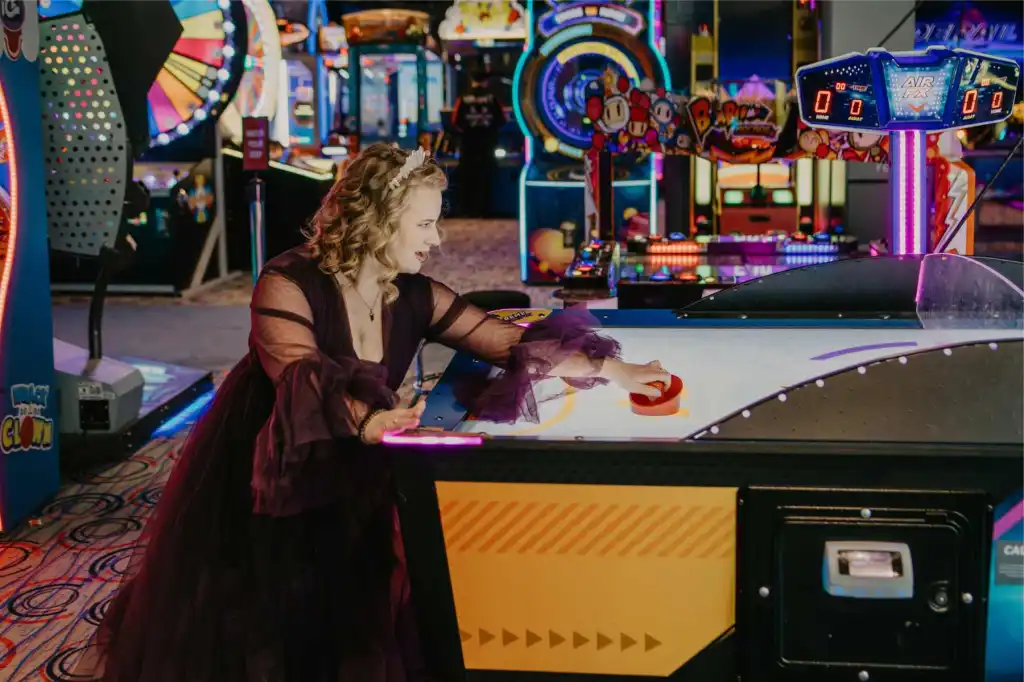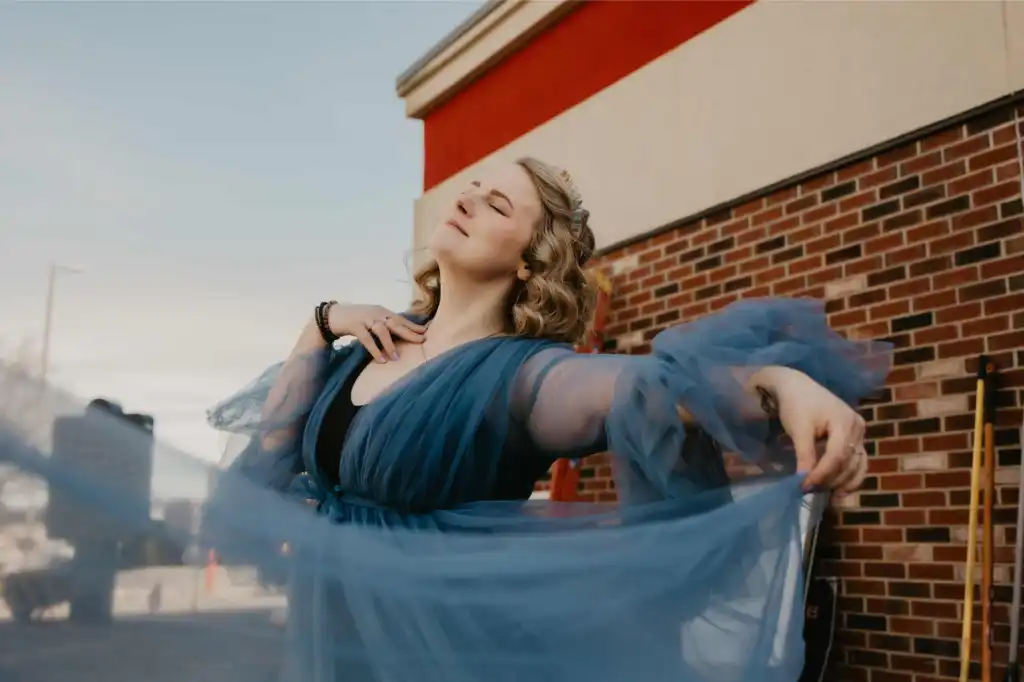Listen to the episode
In today’s fast-paced world, differentiating between anxiety and intuition can be challenging. Our minds are incredibly adept at convincing us that our anxiety is actually intuition. I will explore the differences between anxiety and intuition, providing practical strategies to discern which is speaking to you.
Understanding whether you’re experiencing anxiety or intuition is crucial. Anxiety is often rooted in fear and can cloud our judgment, while intuition is a deeper, more instinctual knowing. By learning to differentiate between the two, you can make decisions that are more aligned with your true self rather than reacting out of fear.
The Brain’s Role in Anxiety and Intuition
Our brains are wired for survival, constantly scanning for threats and prioritizing anxiety over intuition. This survival mechanism has kept us safe throughout history, but it can also lead to unnecessary anxiety in modern life. Understanding that your brain is doing its job to protect you can foster compassion towards yourself when you feel anxious.
Your brain is exceptionally good at its job, constantly alert to potential dangers. It’s important to recognize that your anxiety isn’t a flaw but a survival mechanism. However, this also means that your anxiety is often louder and more persistent than your intuition.
For example, imagine you’re walking through a jungle, and you spot a tiger. Your immediate reaction—fight, flight, or freeze—is driven by anxiety, a primal response ensuring your survival. Your intuition might guide you in how to move away or find a safe hiding spot quietly, but it’s the anxiety that triggers the immediate, necessary reaction to a perceived threat.
Rewiring Your Brain
The good news is that your brain can be rewired. Regardless of your background, education, or experiences, you can train your brain to listen more to your intuition and less to your anxiety. This process involves developing new thought patterns and habits that prioritize intuition.
Building Compassion for Your Brain
The first step in this process is to stop working against your brain. Anxiety often comes with a sense of shame, but understanding that your brain is wired perfectly for you can help alleviate this. Comparing your brain to others’ or societal standards only fosters shame.

Differentiating Anxiety and Intuition in the Brain
Anxiety and intuition manifest differently in the brain. Anxiety is future-focused, filled with “what if” statements and worst-case scenarios. Intuition, on the other hand, is a present-moment knowing. It feels like a calm, clear sense of understanding without the looping thoughts characteristic of anxiety.
For example, anxiety might tell you, “What if this happens? What if this doesn’t happen? What if this goes wrong? What will people think of this?”
Intuition is rather more of a knowing; it’s saying, “I have this message, or I have this answer, and I don’t always have a reason behind it.”
Anxiety keeps you stuck in a spiral of worry, while intuition allows you to observe and understand your feelings, guiding you forward.
Another example would be anxiety. It’s the worst case: “What if this person deceives me? Or what if this person’s wrong?” Whereas intuition is, “It’s so interesting that when I’m around this person, I feel really good, and my mind feels really clear. When I’m around this person, I feel myself start to tense up, and I have a headache when I leave their space. What’s that about?” It’s like this curiosity to it.
Whereas anxiety and curiosity don’t often coexist, anxiety is usually more linked to judgment or expectations. Unlike intuition, where it’s more so, “I’m not sure what this could be, but I’m curious to see how it plays out.”
Differentiating Anxiety and Intuition Emotionally
The emotional differences of anxiety and intuition are distinctly different, influencing how we feel and react. Anxiety is dominated by intense emotions like fear, worry, and panic. It creates a sense of urgency and constant worry about the future, making it hard to focus on anything else. When you’re anxious, you might find yourself stuck in a loop of “what if” questions and worst-case scenarios, unable to see a clear path forward. This constant state of fear can be exhausting and paralyzing, making it difficult to make decisions or take action.
However, intuition is marked by a sense of calm and clarity. Intuitive feelings are often subtle and arise without the intense emotional charge associated with anxiety. For example, while anxiety might cause you to overthink and second-guess every decision, intuition provides a quiet confidence and a sense of knowing. This calmness allows you to make decisions based on a deeper understanding, even if the decision is challenging. Intuition guides you without the emotional turmoil, offering a clear and straightforward sense of direction.
Acting on anxiety often leaves you feeling drained and regretful, as anxiety-driven decisions are typically reactive and fear-based. Meanwhile, following your intuition, even when it leads to tough choices, usually brings a sense of peace and alignment with your true self. You feel more connected to your values, and this connection creates greater self-trust and confidence.
An example of comparing the two is to think of a passenger in the car. Your intuition cares about your survival just as much as your tiger brain. And if you think about a navigator driving in a car with you, they will never steer you off a cliff. They might guide you on a different path than you expected. You might go over some rocky terrain. But ultimately, they want you to be safe just as much as you are. The navigator in the passenger seat isn’t going to scream the directions at you. That’s different from how you get someone to listen.
Whereas anxiety is grabbing the wheel and turning it erratically. You never know if you’re going to hit a mailbox because your anxiety is freaking out. The anxiety is yelling, taking control, and creating chaos in the car while the intuition sits with the map, saying, okay, we’re going to turn right now.
This is why your anxiety would be louder than your intuition. If you’ve ever been in a car with someone in the back seat, kicking at your seat and screaming and yelling, it’s very hard to listen to your GPS. That’s why we have to create that compassion. Anxiety is the more oppressive force in this scenario, that’s the voice you’ve been listening to, and nothing is wrong with you that you can’t hear the quiet, steady intuition when the only thing you’ve known is the chaotic backseat driver.

Differentiating Anxiety and Intuition in the Body
Anxiety and intuition manifest physically in different ways. I feel more intuition through my physical body, and this was key in helping me understand the differences.
Anxiety manifests through physical sensations that are often intense and uncomfortable, signaling the body’s fight-or-flight response. Common feelings include a racing heart, shallow breathing, sweaty palms, and muscle tension. These sensations are your body’s way of preparing for perceived danger, even when the threat is not immediate or real. For example, when you walk into a room where someone just had an argument, and even though no one’s saying anything, you can feel that heaviness, that tightness. These physical signs are your body reacting to the anxious thoughts racing through your mind, creating a feedback loop that amplifies your anxiety.
Intuition typically presents as a more subtle and relaxed physical experience. When you tap into your intuition, your body often feels at ease, and you might experience a sense of lightness or expansiveness. This contrast is significant because it highlights the body’s different reactions to anxiety and intuition.
Intuitive insights often come with a sense of calm, even when they suggest making a difficult decision. For example, if you’re considering a significant life change and your intuition is guiding you towards it, you might feel a deep, calm assurance in your gut, often referred to as a “gut feeling,” which feels inherently different from the tight, uncomfortable knots of anxiety.
The physical sensations of anxiety can be overwhelming and distracting, making it hard to focus on anything other than anxious thoughts. These sensations can include headaches, clenching, and heart sinking. The physical experience of intuition is often quieter and can be easy to overlook if you’re not paying close attention. It might be a gentle nudge, a neutral feeling, or a subtle sense of knowing that feels familiar and reassuring.
Recognizing these physical differences can be a powerful tool in distinguishing between anxiety and intuition. By paying close attention to how your body responds, you can start to identify whether you’re experiencing the intense, often debilitating physical symptoms of anxiety or the calm, clear signals of intuition. This awareness can help you make more informed decisions, reducing the impact of anxiety on your life and allowing your intuition to guide you more effectively.
Navigating Anxiety and Intuition: Finding Balance and Agency
Becoming attuned to your intuition and trusting it are valuable goals, yet they don’t eliminate anxiety from life. Understanding that intuition serves as a guide while anxiety acts as a necessary warning system is essential. Just as a fire alarm alerts us to danger, anxiety alerts us to potential threats. However, managing anxiety involves rewiring our responses, much like reprogramming a fire alarm to distinguish between real and false alarms.
Achieving agency over anxiety means recognizing when it’s a genuine signal versus an unnecessary alarm. It’s about honing our ability to discern real threats from perceived dangers amplified by anxiety. This process empowers us to use anxiety constructively, acknowledging its role without letting it dictate our decisions or overwhelm us.
Tools to Help You Find Clarity
Finding clarity can be as simple as stepping outside into nature when uncertainty clouds your judgment. Walking in a natural setting offers a powerful tool to recalibrate your perspective. Whether you listen to a podcast or music, or simply enjoy the sounds of nature, the key is to give yourself space and time away from the situation.
As you walk, pay attention to how your body responds. Notice any tension easing, any sense of heaviness lifting. This physical change often mirrors a shift in mental clarity. Returning from your walk, you can reassess your feelings and thoughts with a fresh perspective.
What do you feel in your body, or is it in your brain? Is it in the present, or is it in the future? Is it heavy and tight, or is it light and soft? Is there fear and worry, or is there a sense of trust, neutrality, and curiosity?
This practice isn’t about finding immediate answers but creating a pause to differentiate between genuine intuition and anxiety-driven responses. Doing this will empower you to make decisions from a place of grounded awareness rather than reactive fear.
Find out more about my training, Reiki 1: The Science of Self-Healing.
September 26, 2024